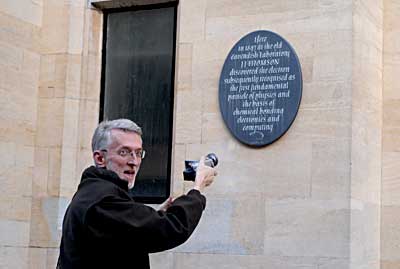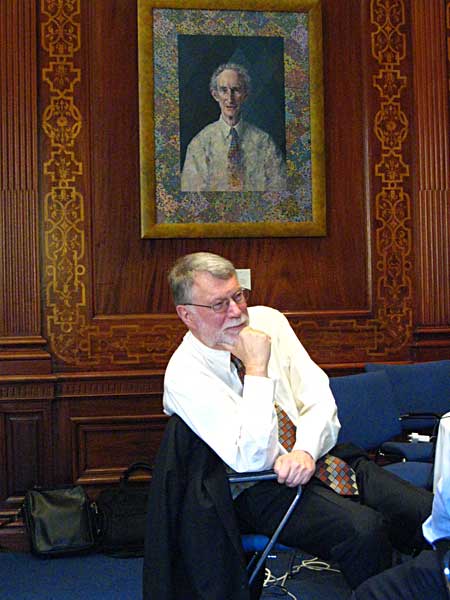
Jeff Jarvis came to Cambridge yesterday and had lunch with a group of us in the Eagle. I’ve been reading his blog for years, and greatly admire his sharpness and clarity. As he talked over lunch, I was reminded of something Noel Annan said once about a colleague. “I wish I was as sure of anything as that man is about everything”. Afterwards we went on a stroll down Free School Lane past the Old Cavendish laboratory where the electron was discovered (by J.J. Thompson) and the atom was split for the first time (by John Cockroft and Ernest Walton) and the structure of the DNA molecule was elucidated (by James Watson and Francis Crick). We paused by the plaque commemorating the discovery of the electron and Jeff pulled out his camera.

So of course I photographed him doing so. What I didn’t realise is that Quentin was at that moment trying to get into position to photograph me photographing Jeff. But the main subject moved and so what David Good described as a perfect postmodernist photographic moment passed unrecorded.
Thanks to Bill Thompson for arranging a great lunch.





